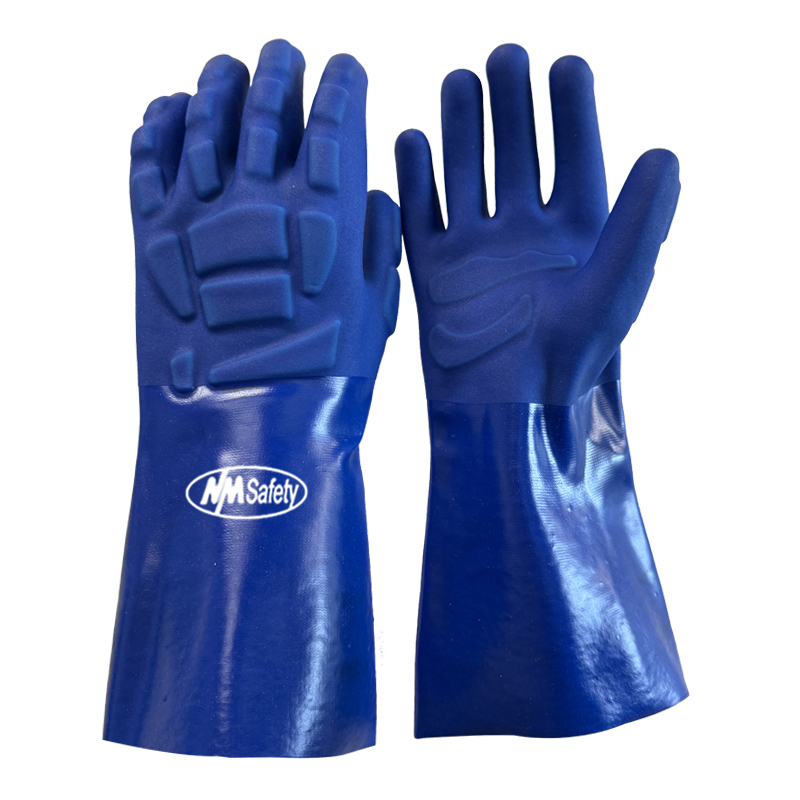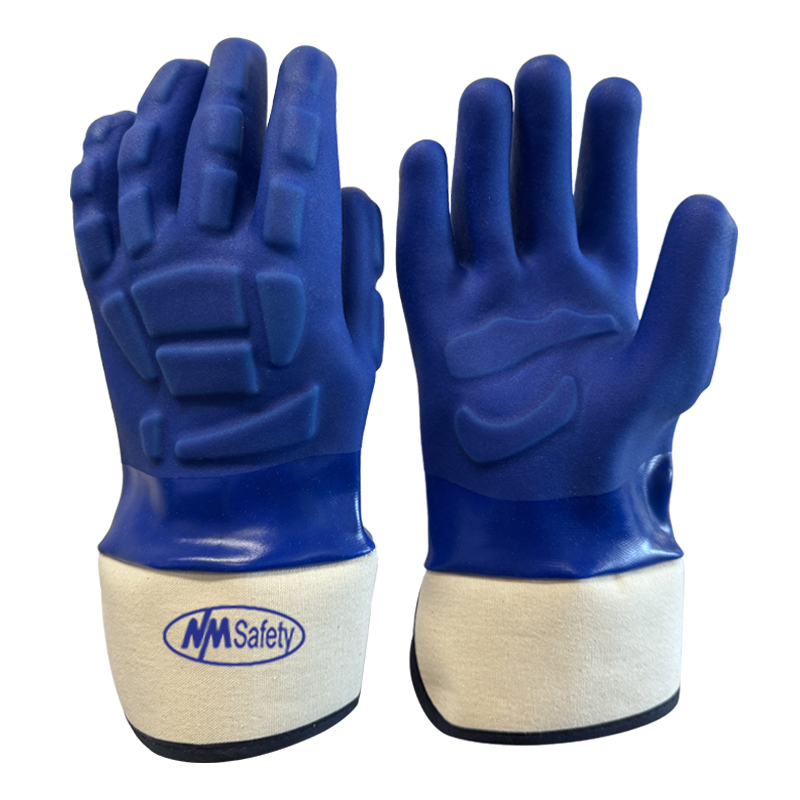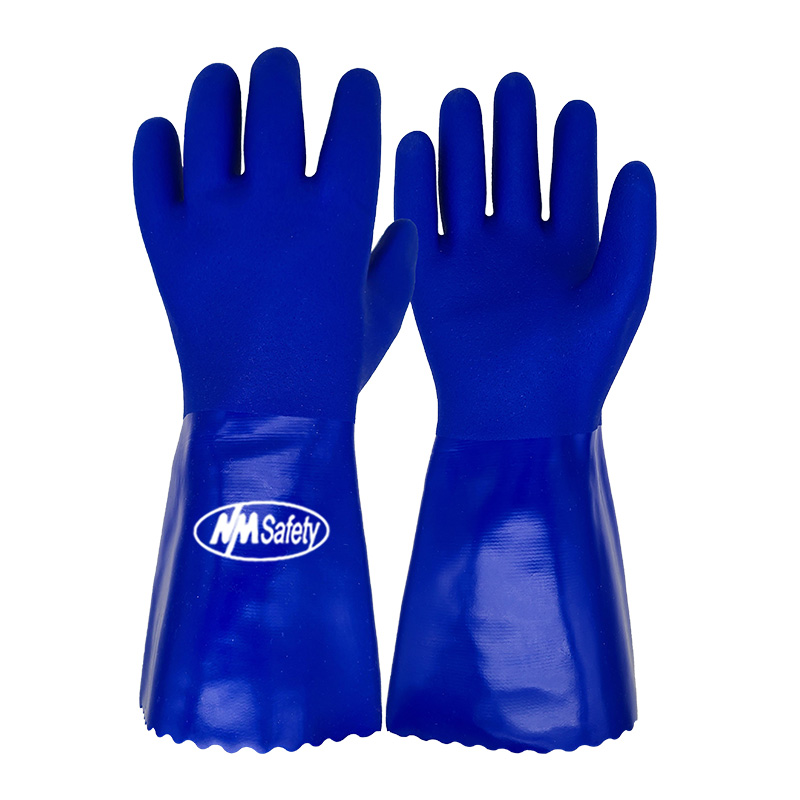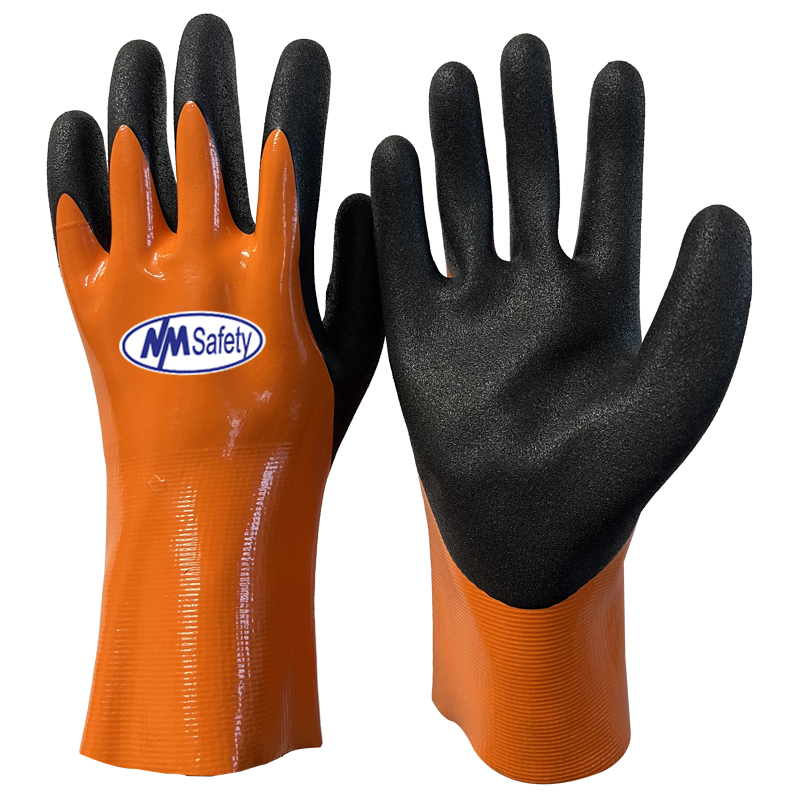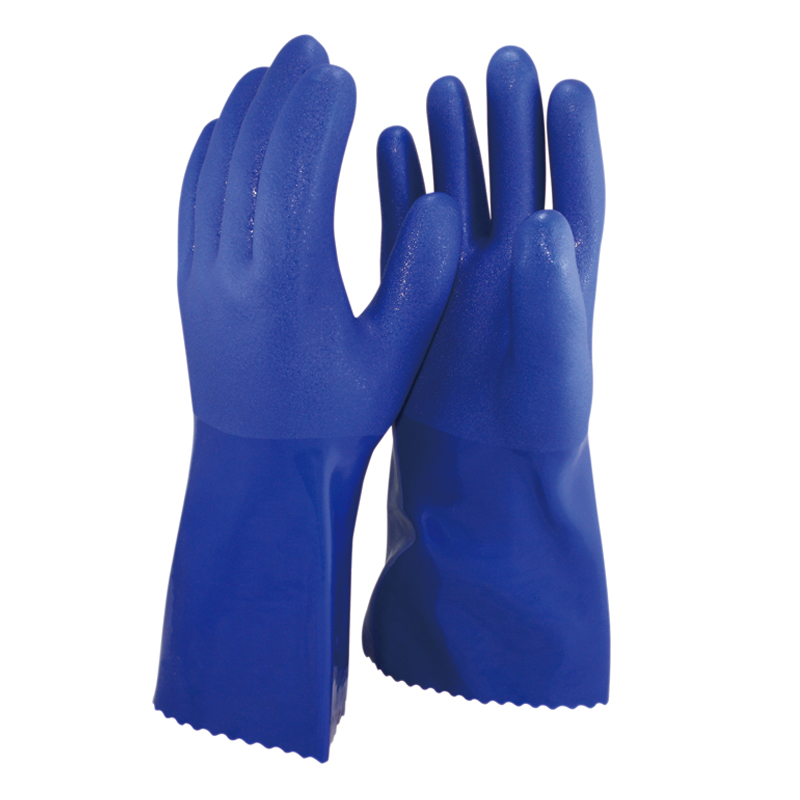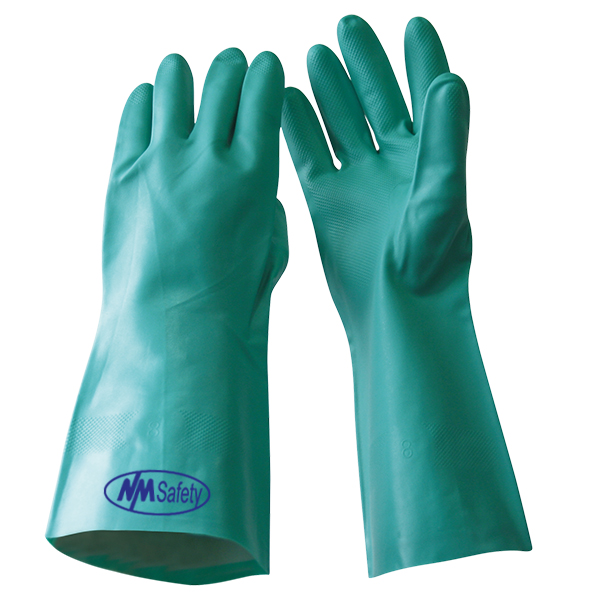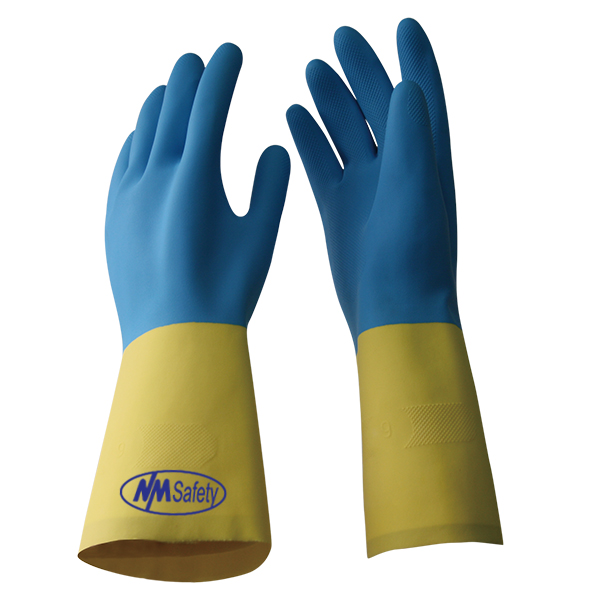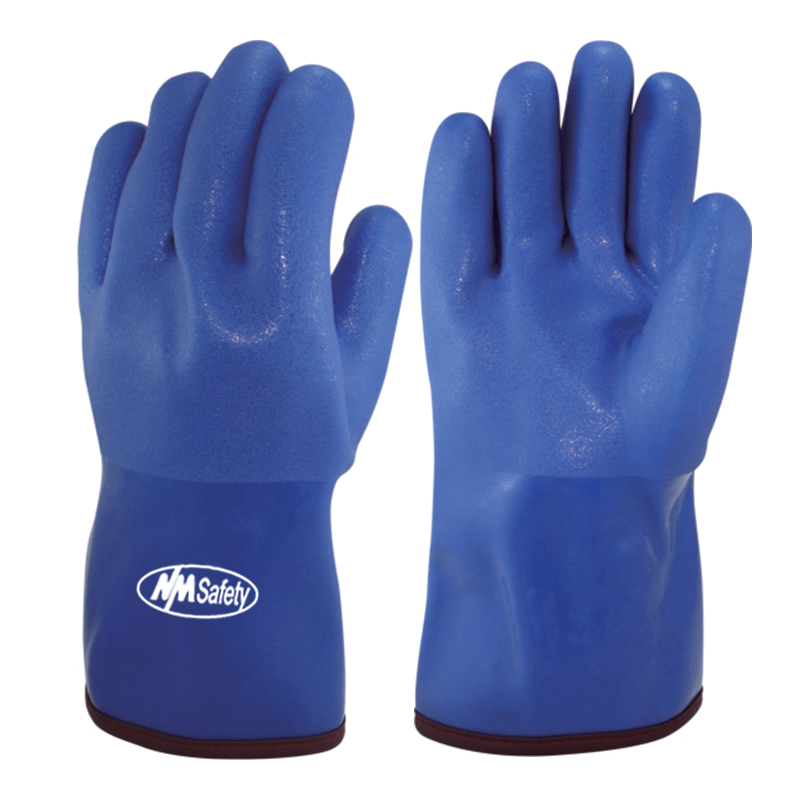Chemical
Category
Industry
lf you can't find the product you need, please Email Us and we are happy to help.
Meta Description: Chemical-resistant gloves are critical for keeping staff safe from harmful and destructive toxic agents. They're the last line of defense between the worker and chemicals.
What is Chemical Resistant Gloves?
They protect against hydraulic fluids, oil, ethyl alcohol, secondary metabolites, and caustic soda, and generally outperform synthetic rubber gloves in terms of corrosive and shock resistance. Regardless of the chemicals to which the worker will be exposed, the protective material used varies. You can find these chemical-resistant gloves of the best quality at NMSafety in a huge variety that will not only give you the ultimate sense of protection your task required but also help in multitasking while dealing with oils or any other depending on the material you are using.
Compatible Glove Materials Good For Chemical Protection:
Butyl Gloves:
Butyl rubber is the most used material in manufacturing these gloves due to their chemically resistant nature to gases and ketones and their compact molecular structure. Butyl gloves are only accessible in a pre-approved form and are used by the military to guard against chemical warfare agents. Butyl is unreactive and good against scratches, but it does not harden when exposed to freezing temperatures.
Neoprene Gloves:
They are a type of glove that is comprised of a material called neoprene. Neoprene gloves defend against oils, burns, high heat, and a range of other hazardous environmental conditions. Not only that, but they also protect against bruising, lubricating oils, alcohols, gasoline, alkalis, and inorganic substances.
Rubber Gloves Made Of Nitrile:
Nitrile rubber is used to create versatile, all-purpose gloves that may be used in a variety of conditions (i.e. disposable exam gloves). Thicker nitrile gloves are recommended in situations when sustained contact is necessary.
Advantages: Wearing nitrile gloves can protect you against the following:
- Liquids
- Gasoline
- Oils
- Paraffin oil is a type of oil that is generated from paraffin.
- a small number of acids and bases
Latex Gloves:
They are resistant to acids, oxidizing agents, bases, and esters in liquid, possess high elastic modulus, and work well in both different temperature settings. Some personnel may be unable to utilize them due to latex allergies. It is typically considered to be comfy, and they're a terrific all-rounder glove.
Latex VS Nitrile Gloves— What Better Against Chemicals:
Nitrile gloves are comprised of artificial rubber that can withstand perforations and aggressive cleaning solvents while restricting proprioception. Unlike other gloves, they are utilized in a broad range of applications. The chemical-resistant glove's core is nitrile. While natural rubber latex gloves are comfy and defend against microbes. The chance of an adverse response to the powder coating in the gloves manifested as a dermal infection, is a risk for employing latex. Because it protects well against transmitted diseases, it's mostly used in the medical supplies sector. Latex isn't particularly resistant to chemicals.
5 Tricks That Can Help To Make the Best Choice While Buying Chemical Resistant Gloves:
Risk Assessment:
Phase 1:
Assessing which substances or mixtures of acids are needed for the function or profession is the first step in the risk evaluation. A risk assessment is generally carried out by whoever is knowledgeable and skilled in the task at hand.
Phase 2:
A further step is to figure out how dangerous the compounds are. Article 8 specifies the forms of personal protective equipment (PPE) aiming to safeguard the user. Article 11 contains toxicological facts such as possible subcutaneous consequences, but also penetration via the epidermis and the resulting mild and severe consequences. These SDS articles are of utmost importance.
The Thickness Of The Gauge:
The papery, lightweight gauge of the gloves provides a higher contact sense and adaptability at the expense of chemical resistance.
Gloves with a denser gauge are weighty and seem to have superior chemical resistance to those with a thin gauge.
Exposure Time:
Certain operations may just only spray safety or only involve occasional exposure to the acids, whereas others necessitate thorough engagement or persistent interaction.
Lining:
Woven liners perform the same thing, as well as provide some thermal insulation. In basic sweat absorption, polyester flocked liners are used. Flock and woolen liners are available in a variety of glove designs. Gloves with brushed coatings have been used to improve handling.
Level Of Dexterity You Need:
Activities that demand fine motor control, such as experimental research, might necessitate a lighter glove fabric, but activities such as dusting commercial components may not. The level of dexterity necessary according to each duty must be considered while examining the work criteria.
Our Top Favorites Among All Chemical Resistant Gloves:
Nitrile Disposable Gloves:
These chemical resistant gloves are made of powder-free and latex-free material this is why they protect against most chemicals and infectious agents, nitrile gloves are one of the finest materials for disposable gloves that are available only at reliable disposable glove suppliers. Our Disposable Nitrile Gloves include textured tips that enable fine control in medical conditions, cleaning, salon work, food preparation, and more.
Blue PVC Fully Coated Gloves:
All of your chemical protection demands can be met with PVC. Even in frigid temperatures, PVC gloves quickly adapt. It has a good amount of tear resistance and good handling. It also has low heat resistance, making it unsuitable for use in hot conditions. Chemicals, salts, organic compounds, oxidizing agents, and lipids are all well-protected by it. Urea hydroxide, Boric acid, Sulphides, Turpentine, Phenyl ring alcohol, and Inorganic salts are all examples of general compounds that PVC shields from.
Summary:
Chemical resistant gloves are vital as your PPE if you’re working in the chemical industry and spend a lot of time interacting with harmful chemicals protection is essential. You shouldn’t ignore this hand safety measure and buy them from a good vendor as they’re available everywhere. But we suggest that before going anywhere else take a look at NMSafety chemical resistant gloves range, it’ll not disappoint you either way from quality to protection level.
REQUEST A QUERY


